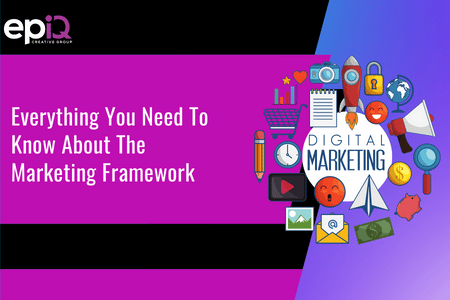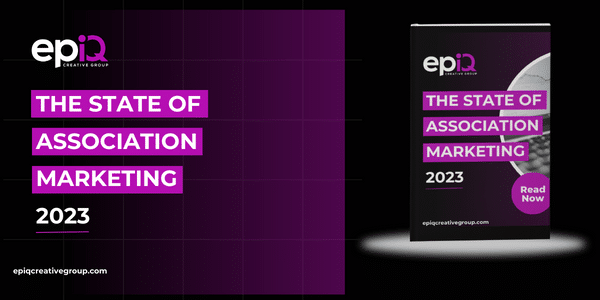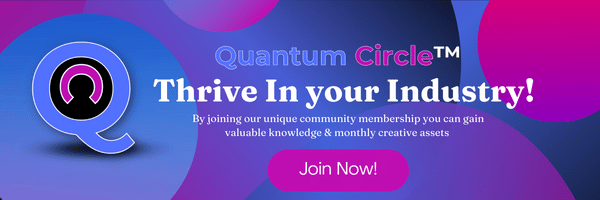Everything You Need To Know About the Marketing Framework
When you think about marketing, equating it with building a house is a good way to get to grips with things. Your business is your lot, and the people on your team are your architects, engineers, surveyors, and builders. How can you start building if you don’t have a blueprint?
When you understand how far-reaching marketing is, you’ll see the need for a framework that will streamline your team’s every move. Yes, a marketing framework is your team’s blueprint to guide every marketing process, system, plan, and task. If you’re wondering how you can kickstart your business’ marketing or revamp it for the best, you’ll find your answers now.
What Is a Marketing Framework?
A marketing framework is a visual map of your marketing plan. It’s a logical flow of your marketing goals, showing every crucial detail: objectives, measures, and methods. Without a marketing framework, your marketing will be all over the place.
Creating your marketing strategy framework is your first step in achieving your marketing goals. It answers important questions, such as:
- How do we reach our target audience?
- What marketing content should we produce?
- Which tools do we need?
- What assets do we have that we can maximize?
- Which aspects do we need to improve?
- What strategy should the team use?
Marketing is demanding, so building a framework that allows you to take control of it is vital. It’s a whole journey that starts with a marketing framework!
Why Do You Need a Marketing Framework?
Prioritizing a marketing framework will allow you to accomplish the following:
Improve Your Overall Marketing Strategy
If your current marketing strategy isn’t performing well, a framework will allow you to identify the gaps and how to fill them. And if you’re rebuilding your marketing plan, a framework will give you a head start!
Keep Your Team on the Same Page
Your marketing framework will help everyone in your team to know where they should be, what they should be doing, and how they should function. Everyone will know what they are aiming for!
Gather Your Assets
A marketing framework will be home to all your templates, guides, and tools. All your assets will be in one place, allowing easy access for your team and speedier processes.
Establish Your Brand
With a marketing framework, your team can establish approved verbiage for your organization. As a result, you can streamline your communication through various channels.
Communicate Designated Roles and Responsibilities
Since you have the entire team on the same page, it’s easier to communicate and delegate roles and responsibilities. Everything you have to build and do will be in your marketing framework, informing every member of their parts.
Save Time and Money
With everyone in your team aware and educated about your strategy, there will be less chance of redoing things repeatedly. The systems you base on your framework will reduce the need to go back and forth between your processes, saving you time and money in the long run.
Generate Business Growth and Success
Ultimately, a marketing framework contributes to your business’s growth and success. You reach your target audience, convert leads, and generate profit with a successful marketing strategy
What Are the Types of Marketing Frameworks?
Not all houses have the exact same blueprint. The same goes for businesses! There are different types of marketing frameworks that companies can use depending on the goals. Here are five of the most common marketing framework types:
7Ps Marketing Mix
7Ps Marketing Mix is one of the most traditional marketing models. This framework helps you assess and analyze all your business’s aspects, jumpstarting optimization and improvement. When you use this framework, you focus on the 7 Ps:
- Product
- Price
- Place
- Promotion
- People
- Process
- Physical Evidence
You determine the products you sell and their prices. Also, consider where you’re selling and decide how to promote it. Identify the people involved in the processes and how you’re going to deliver. Lastly, provide evidence that your business exists.
STP Marketing Model
Another traditional marketing model is the STP. It stands for Segmentation, Targeting, and Positioning. Following this marketing framework means dividing your audience into sections and targeting those most receptive to your product or services. After the first two stages, you position yourself as a business with the most appealing product to your targets.
Porter’s Five Forces
Porter’s Five Forces focuses on the outside influences that affect profitability rather than the product and the audience. It’s a good framework for identifying the competitiveness of your business environment, allowing you to build or refine a strategy for success. Porter’s Five Forces looks at the following:
Supplier Power
- Buyer Power
- Threat of Substitution
- Threat of New Entry
- Competitive Rivalry
- Pirate Metrics or AARRR
Startup Founder Dave McClure developed the Pirate Metrics or AARRR marketing framework to help businesses see the customer journey and the marketing aspects that need improvement.
AARRR stands for Acquisition, Activation, Retention, Revenue, and Referral. You discover how people find you and what turns them into leads. You also figure out if they do come back to you after they leave and how you can generate profit from them. With excellent products or services and customer experience, they may refer you to other potential customers.
Lean Analytics Stages
The Lean Analytics Stages provide great marketing help, especially for small businesses or startups. Alistair Croll and Ben Yoskovitz developed the framework by combining different aspects from different marketing models. It focuses on its five pillars:
- Empathy
- Stickiness
- Virality
- Revenue
- Scale
The framework guides you from product development to the increase of revenue.
These are just five of the many marketing frameworks your business can utilize. The “best” marketing framework will ultimately depend on your business. Marketing is like a giant you have to tame, so choose your weapons wisely!
How Do You Create a Marketing Framework?
You’ve already established that having a marketing framework is crucial for your business. Now, how do you actually build one? Here are some marketing tips for creating a framework:
Step 1. Select the Best Marketing Framework Type
Identify your objectives and choose a marketing model that will best maximize them. Remember that your social media strategy can and should be different from your website strategy. Each strategy must have a working framework.
Step 2. Decide Your Measures
How will you manage your marketing efforts and reach your goal? You can maximize and optimize your assets as a marketing team by having measures. Have as many measures as you need!
Step 3. Plan Your Methods
How will you actually apply your measures in action? Be detailed in your posting schedules, content, and plans for increasing your followers.
Step 4. Carry Out Your Framework
Lastly, operate as a team! Complete your framework with your team by assigning roles and finalizing responsibilities. And even after “completion,” remember that the work never stops. Keep developing your marketing framework and keep up with the industry’s demands.
Bottomline
There’s no better and more effective way of approaching marketing than starting with a marketing framework. It’s the foundation of your marketing strategies and the path toward your marketing goals. Creating your marketing framework will require work, but it’s the step that will send your business to greater heights. Dedicate time and effort to it with your team. And when the blueprint is ready, the bigger marketing challenges begin!
References:
- https://www.ama.org/marketing-news/what-are-marketing-frameworks/#:~:text=The%20marketing%20framework%20is%20the,called%20the%20marketing%20strategy%20framework.https://www.brafton.com/blog/content-marketing/a-guide-to-developing-an-actionable-marketing-framework/
- https://smallbusiness.chron.com/write-marketing-framework-10374.html
- https://blog.hubspot.com/marketing/marketing-frameworks
Who is epIQ?
epIQ Creative Group is a digital marketing agency that specializes in accelerating sales and scaling revenue for businesses. With over a decade of experience, epIQ's expert team ensures your investment yields a substantial return, eliminating guesswork and saving you thousands through data-driven strategies. Our services encompass brand messaging, paid media advertising, inbound marketing, and creative content creation.
epIQ's proprietary systems have a proven track record, with clients experiencing 2x to 5x growth within 90 days. We are transparent and agile, providing you with progress reports, and direct access to growth marketers.
What sets epIQ apart is our flexibility and cost-effectiveness. We offer month-to-month contracts, a-la-carte services, and our team's expertise comes at a fraction of the cost of hiring in-house.
epIQ Creative Group is not just another digital marketing agency; we are a partner committed to your success. Our innovative approach, dedication, and transparency guarantee not just growth, but unparalleled success for your business.



